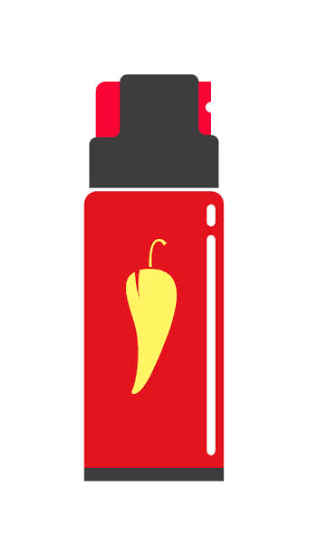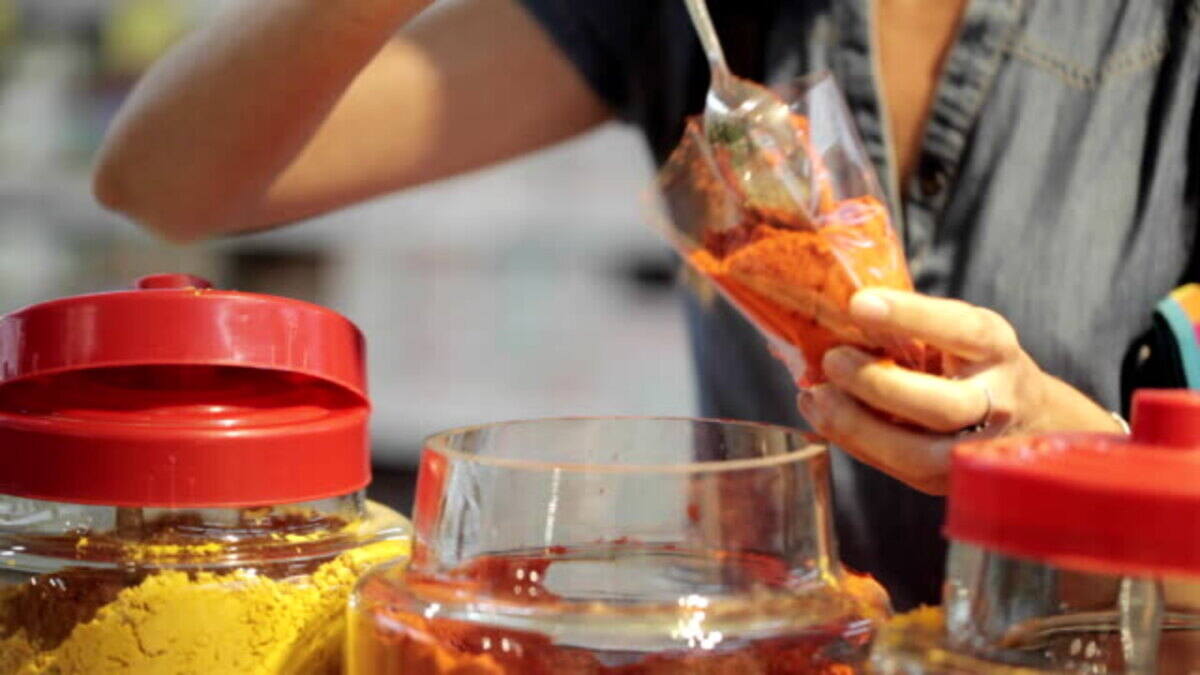Pepper spray is a commonly used self-defense tool that contains oleoresin capsicum (OC), a powerful substance derived from hot peppers. It is known for its ability to temporarily incapacitate an attacker by causing intense irritation, pain, and difficulty in breathing. While it is primarily used for personal safety, many people wonder if pepper spray is edible. In this article, we will explore the topic of pepper spray edibility in detail, addressing common questions and providing expert insights.
Understanding Pepper Spray
Pepper spray, also known as OC spray or capsicum spray, is a non-lethal aerosol spray used for self-defense. It typically comes in a small canister and contains a concentrated form of oleoresin capsicum, a substance derived from hot peppers. When sprayed in the face of an attacker, pepper spray causes an intense burning sensation, temporary blindness, and respiratory distress.
The Components of Pepper Spray
Pepper spray is composed of several components, including:
- Oleoresin Capsicum (OC): The active ingredient derived from hot peppers.
- Propellant: A substance that enables the spray to be propelled from the canister.
- Solvent: Used to dissolve the OC and propellant, allowing them to mix uniformly.
- Additives: These may include dyes for marking purposes or UV tracers for easy identification.
Is Pepper Spray Safe to Ingest?
No, pepper spray is not safe to ingest. Pepper spray is formulated and intended for use as a defensive tool and should never be consumed. The high concentration of oleoresin capsicum can cause severe irritation and inflammation when ingested, leading to intense burning sensations in the mouth, throat, and digestive system.
What Happens If You Eat Pepper Spray
If you eat pepper spray, you would likely experience severe discomfort and potential harm. The active ingredient, capsaicin found in chili peppers will cause a burning sensation when it comes into contact with mucous membranes, including those in your mouth, throat, and stomach. Upon ingestion, you may immediately feel a strong, painful burning sensation in your mouth, followed by a similar sensation down your esophagus as the spray is swallowed. Additionally, it may cause difficulty breathing, choking, and gagging. The spray could also result in nausea, vomiting, and abdominal pain. In severe cases, it could even cause inflammation or burns to your digestive tract.
What to Do If You Accidentally Ingest Pepper Spray?
If you accidentally ingest pepper spray, it is crucial to take immediate action. Here are the steps you should follow:
- Rinse your mouth: Flush your mouth with cold water to help alleviate the burning sensation.
- Drink milk: Dairy products like milk can help neutralize the effects of pepper spray due to the casein protein they contain.
- Avoid irritants: Refrain from consuming any food or drinks that may irritate your already inflamed throat.
- Seek medical attention: If your symptoms worsen or persist, it is essential to seek medical assistance immediately.
Alternative Uses for Pepper Spray
While pepper spray is primarily designed for self-defense, it has found alternative uses in certain situations. Some of these include:
- Animal deterrent: Pepper spray can be used to deter aggressive animals during encounters or for protection in areas with wildlife.
- Bear repellent: In areas prone to bear encounters, bear spray, a specialized form of pepper spray, can provide an additional layer of protection.
- Personal safety training: Pepper spray can be used as a training tool to simulate real-life self-defense scenarios and help individuals prepare for potential threats.
FAQs about Pepper Spray Edibility
Can I use pepper spray as a spice in cooking?
No, pepper spray should never be used as a spice in cooking. It is highly concentrated and formulated for self-defense purposes only. Using pepper spray in food can lead to severe irritation and health risks.
Is it safe to spray pepper spray on food to deter animals?
No, spraying pepper spray directly on food is not recommended. It can contaminate the food and make it unsafe for consumption. There are specialized animal deterrent sprays available for this purpose.
Can pepper spray be accidentally discharged in food products?
While accidental discharge can occur, it is highly unlikely that pepper spray would end up in food products. Pepper spray is typically packaged in sealed canisters with safety mechanisms to prevent accidental activation.
Can you smell pepper spray?
Yes, pepper spray has a strong and pungent odor that is easily detectable. The active ingredient in pepper spray, oleoresin capsicum (OC), releases volatile compounds that give it a distinct smell. When pepper spray is discharged, the odor can quickly fill the surrounding area, making it difficult to ignore. The smell is often described as a combination of strong peppers and a chemical-like scent. It is important to note that even the smell of pepper spray can cause irritation and discomfort, so it is advisable to avoid inhaling it whenever possible.
Conclusion: To Eat or Not to Eat Pepper Spray?
In conclusion, pepper spray is not edible and should never be consumed. It is a powerful self-defense tool that contains oleoresin capsicum, which can cause severe irritation and health risks when ingested. Pepper spray is designed for use in self-defense situations and should be handled with care. Always follow the manufacturer’s instructions and use pepper spray responsibly. If accidental ingestion occurs, seek immediate medical attention. Remember, pepper spray is meant to protect, not to be ingested.
READ: Are Pepper Spray Guns Legal? Know Your Rights
Bliss Ferdinand is a resilient single mother and the founder of pepperspraymum.com, a blog dedicated to empowering women and promoting personal safety. With a passion for self-defense, Bliss shares her knowledge and experiences to help other mothers protect themselves and their families. Through her blog, she educates her readers about the effective use of pepper sprays, offering valuable insights, product reviews, and practical tips on staying safe in various situations. Bliss’s commitment to her community has inspired many women to take charge of their own security, making pepperspraymum.com a go-to resource for those seeking practical advice and peace of mind

